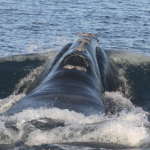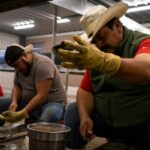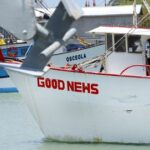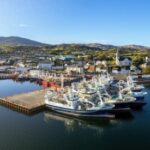Tag Archives: sewage treatment plants
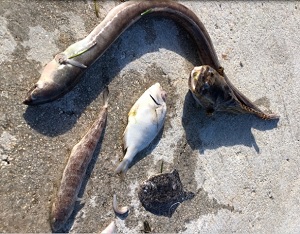
Nutrient Pollution and Algae Blooms: Pollution Has Cost Florida Millions, and the Bill Keeps Rising
Amid a historic fish kill in Biscayne Bay, the public’s eyes are on some of the causes of the dire situation plaguing our waters: nutrient pollution and algal blooms. Nitrogen and phosphorous from fertilizers and sewage-treatment plans across the state are supercharging the growth of toxic algae that makes the water undrinkable and depletes it of oxygen. Cleaning up that algae hasn’t been cheap. Over the past decade, the State of Florida has spent at least $20 million cleaning up and preventing algal blooms in its major bodies of water, according to a recent study by the nonprofit Environmental Working Group (EWG). >click to read< 08:00
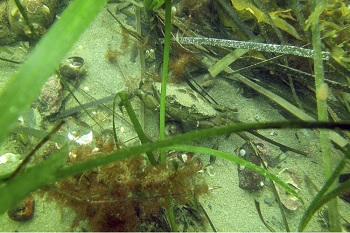
Scientists Struggle to Save Seagrass From Coastal Pollution
In parts of the United States and other developed countries, there is growing recognition of the importance of seagrass and its sensitivity to nitrogen-rich runoff from sewage treatment plants and other sources. Too much nitrogen can spike algae growth, which clouds the water and blocks the sunlight seagrass needs to grow. “We think this is a problem that has to be solved,”,, Communities around the Great Bay have spent about $200 million to upgrade wastewater treatment plants,,, >click to read< 13:24
Fish becoming transgender from contraceptive pill, chemicals being flushed down household drains
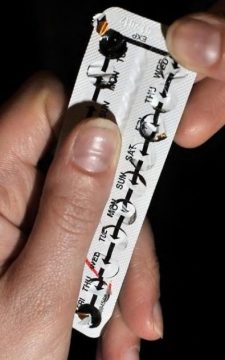 A fifth of male fish are now transgender because of chemicals from the contraceptive pill being flushed down household drains, a study by has suggested. Male river fish are displaying feminised traits and even producing eggs, the study found. The chemicals causing these effects include ingredients in the contraceptive pill, by-products of cleaning agents, plastics and cosmetics, according to the findings. More than 200 chemicals from sewage plants have been identified with oestrogen-like effects and drugs such as antidepressants are also altering fish’s natural behaviour, his study found. “Other research has shown that many other chemicals that are discharged through sewage treatment works can affect fish, including antidepressant drugs that reduce the natural shyness of some fish species, including the way they react to predators,” Professor Tyler said. click here to read the story 19:55
A fifth of male fish are now transgender because of chemicals from the contraceptive pill being flushed down household drains, a study by has suggested. Male river fish are displaying feminised traits and even producing eggs, the study found. The chemicals causing these effects include ingredients in the contraceptive pill, by-products of cleaning agents, plastics and cosmetics, according to the findings. More than 200 chemicals from sewage plants have been identified with oestrogen-like effects and drugs such as antidepressants are also altering fish’s natural behaviour, his study found. “Other research has shown that many other chemicals that are discharged through sewage treatment works can affect fish, including antidepressant drugs that reduce the natural shyness of some fish species, including the way they react to predators,” Professor Tyler said. click here to read the story 19:55
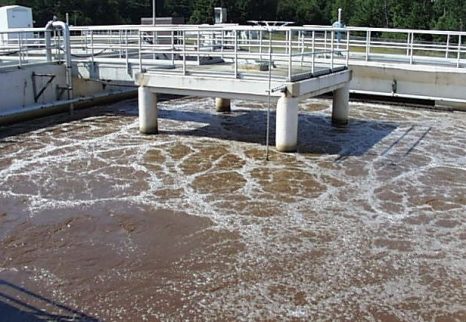
Waste Water Treatment Plants: Once home to thriving aquaculture, Great Bay is under great strain
GREAT BAY’S wonderful production of gourmet food has come to an unbelievable halt, and there’s bound to be a lot of uninformed debate on how to get those species such as clams, oysters, smelt, herring, white perch, crabs, lobsters and other multiple flora and fauna that may slip my mind.,, We’ve lost just about all of this incredible fish and game resource gradually! We’re going to get some flack from the do-gooders as to why they are gone, but when you look at the changes that have been parallel to the loss of fish, it’s been the rebuilding or refitting of the many sewage treatment plants that have been put into service that seem to be the answer to this lack of fish and game. You can see it in the lack of eelgrass beds that used to cover thousands of acres of tidal flats. These new treatment plants have filtered or poisoned most of the nutrients from the Piscataqua River and the many other rivers that serve their municipalities that dump their now super-treated effluent into the tidal water, now so sterile and lacking in nutrients and full of poison that plants and animals cannot survive. Read this article! click here 08:43
Connecticut’s Largest Oyster Bed Closed Amid Contamination Concerns
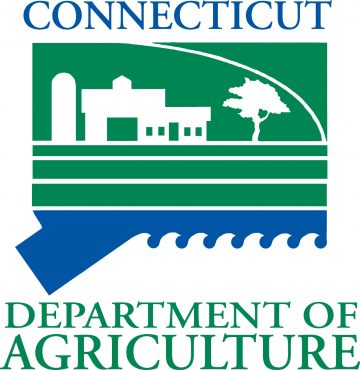 The state’s largest seed-oyster bed has been shut down because of contamination concerns tied to illegal harvesting. The Department of Agriculture says the Housatonic River Natural Oyster Seed Bed was shut down after several incidents involving commercial fisherman breaking harvesting regulations related to contaminated oysters. Commercial fishing firms are supposed to transfer oysters from the river, which contains pollutants from nearby sewage treatment plants, to “relay” beds in the Long Island Sound for six months so they can be naturally cleansed. Oysters that do not go through this process could contain bacteria and viruses that would make people sick if eaten. An oyster boat captain was arrested on June 7 on accusations of illegally transplanting contaminated oysters from the bed onto oysters in the Sound. Since then the state has increased patrols in the area and the Dept. of Agriculture says they have spotted other suspicious activities around the bed. Read the rest here 11:03
The state’s largest seed-oyster bed has been shut down because of contamination concerns tied to illegal harvesting. The Department of Agriculture says the Housatonic River Natural Oyster Seed Bed was shut down after several incidents involving commercial fisherman breaking harvesting regulations related to contaminated oysters. Commercial fishing firms are supposed to transfer oysters from the river, which contains pollutants from nearby sewage treatment plants, to “relay” beds in the Long Island Sound for six months so they can be naturally cleansed. Oysters that do not go through this process could contain bacteria and viruses that would make people sick if eaten. An oyster boat captain was arrested on June 7 on accusations of illegally transplanting contaminated oysters from the bed onto oysters in the Sound. Since then the state has increased patrols in the area and the Dept. of Agriculture says they have spotted other suspicious activities around the bed. Read the rest here 11:03
Fish found in Washington’s Puget Sound are tripping on cocaine, Prozac, Advil, Benadryl, and Lipitor.
 Unfortunately, there is no aquatic drug dealer responsible for it. Instead, the intoxication is the result of tainted discharge water. Pharmaceutical pollution could be to blame for the many drugs showing up in the tissues of juvenile Chinook salmon. Estuary waters near the sewage treatment plants were found to contain a cocktail of up to 81 different drugs, according to a new study out of the National Oceanie and Atmospheric Administration (NOAA). There are several plausible theories about the Puget Sound’s high concentration of . Jim Meador, an environmental toxicologist at the NOAA’s Northwest Fisheries Science Center in Seattle, published a study that offered two options. Read the rest here 14:03
Unfortunately, there is no aquatic drug dealer responsible for it. Instead, the intoxication is the result of tainted discharge water. Pharmaceutical pollution could be to blame for the many drugs showing up in the tissues of juvenile Chinook salmon. Estuary waters near the sewage treatment plants were found to contain a cocktail of up to 81 different drugs, according to a new study out of the National Oceanie and Atmospheric Administration (NOAA). There are several plausible theories about the Puget Sound’s high concentration of . Jim Meador, an environmental toxicologist at the NOAA’s Northwest Fisheries Science Center in Seattle, published a study that offered two options. Read the rest here 14:03Diabetes drug found in Lake Michigan could (?) harm fish, researchers say.
 THERE is more than one way to measure prescription drug use. The most direct method is to count prescriptions filled by pharmacies. Or you could test the treated water coming out of sewage treatment plants. Other commonly found substances include caffeine; sulfamethoxazole, an antibiotic; and triclosan, an antibacterial and antifungal found in soap and other consumer products. Read the rest here 17:37
THERE is more than one way to measure prescription drug use. The most direct method is to count prescriptions filled by pharmacies. Or you could test the treated water coming out of sewage treatment plants. Other commonly found substances include caffeine; sulfamethoxazole, an antibiotic; and triclosan, an antibacterial and antifungal found in soap and other consumer products. Read the rest here 17:37
Microplastic pollution discovered in St. Lawrence River sediments
 Previously undocumented in North American rivers, concentrations of microplastic particles in the St. Lawrence are as high as has been observed in the world’s most contaminated marine sediments. Owing to their small size and buoyancy, they may readily pass through sewage treatment plants. Read the rest here 08:18
Previously undocumented in North American rivers, concentrations of microplastic particles in the St. Lawrence are as high as has been observed in the world’s most contaminated marine sediments. Owing to their small size and buoyancy, they may readily pass through sewage treatment plants. Read the rest here 08:18
Because people will be injesting the chemicals, not just the fish in the polluted eco system.
 A new study by the Silent Spring Institute in Newton shows that sewage treatment plants aren’t any better at removing a new class of contaminants from treated water than septic systems. The results weren’t surprising because wastewater treatment systems are made to remove pathogens and solid waste, not the chemicals contained in medicine, herbicides, plasticizers and other products, Silent Spring Institute research scientist Laurel Schaider said. more@capecodonline 09:16
A new study by the Silent Spring Institute in Newton shows that sewage treatment plants aren’t any better at removing a new class of contaminants from treated water than septic systems. The results weren’t surprising because wastewater treatment systems are made to remove pathogens and solid waste, not the chemicals contained in medicine, herbicides, plasticizers and other products, Silent Spring Institute research scientist Laurel Schaider said. more@capecodonline 09:16

































